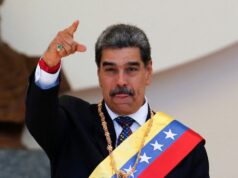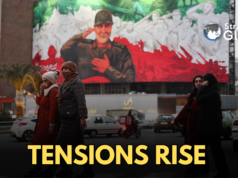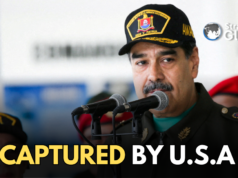India and the Gulf are scaling new heights.
India’s relationship with countries in the GCC region has developed from being merely transactional to strategic.
Ambassador Anil Trigunayat, Distinguished Fellow at the Vivekananda International Foundation says that the institutionalization of India GCC Council meeting, is a big accomplishment.
In a conversation with StatNews Global for The Gist, Ambassador Trigunayat gave credit to Prime Minister Narendra Modi for building personal linkages with GCC leaders.
“ That is one thing that has catapulted the relationship to a different level.’’
Anil Trigunayat who has worked in the Economic, West Asia and North Africa and Consular Divisions of MEA, said that the GCC countries are very important.
External Affairs Minister S. Jaishankar got an opportunity to hold bilateral meetings with his counterparts from GCC countries, at th first India GCC summit in Riyadh.
“ The six GCC countries-Bahrain, Kuwait, Oman, Qatar, Saudi Arabia and the United Arab Emirates, have become the focal of West Asia region.’’
He said that it is always useful to interact with GCC countries.
“The world is in a flux. Like India, they are also beginning to follow strategic autonomy.’’
He said that the GCC region is very important for India. “ This is a region of three Es- Energy, Economy and Expatriates.’’
Anil further said that if this region is destabilized, it will have a direct impact on India.
He said that India’s bilateral trade with GCC countries was 185 billion dollars last year and it is increasing.
“ UAE is our third largest trading partner after China and U.S. Saudi Arabia is our fourth largest trading partner.’’
He further said that India and the GCC region have resumed discussions on Free Trade Agreement (FTA)
He also highlighted that UAE and Saudi Arabia have committed huge investments in India. “Therefore, FTA will benefit both sides.’’
He said that the GCC countries are looking to diversify in supplies. “ India is in discussion to sell some defence equipment.’’
The VIF Distinguished Fellow said that leaders of GCC countries always acknowledged the contribution of nine million Indian citizens who work there.
Ambassador Trigunayat said that the Crown Prince of Abu Dhabi, Sheikh Khaled bin Mohamed bin Zayed Al Nahyan, is accompanied by a big business delegation.
“ This shows that in the strategic partnership, the economic component has more importance. We have 6000-7000 Indian companies in UAE.’’
He added that every relationship needs constant nurturing and leaders of Gulf countries really believe in inter-personal relationships.
“ We are working with UAE in various domains including space and nuclear energy.’’
Saudi Arabia and UAE are also prime movers of the Gulf Cooperation Council.
In the past ten years, Prime Minister Narendra Modi has been to UAE seven times and Qatar two times.
In recent years, we have started moving into a regional space. Now, we are looking at regional focus. GCC is one of the biggest entities in terms of our trade, economy, investments, energy and people to people contacts.
“Since Mrs Indira Gandhi’s visit in 1982, we had no major prime ministerial visit to the region till 2008-2010.’’
Anil says that it is very important to have personal linkages.
He said that unlike Pakistan, India somehow did not project its Islamic credentials properly. Pakistan was able to become a member of OIC in 1969.
“We presumed that all these countries are so Islamic that they will not look at India so kindly. ‘’
The GCC nations have realized that India is a very big opportunity.
‘’The GCC countries have also converted the policy into Act East policy which means that they are looking at the markets in China, India, Japan, South Korea etc.’’
India has signed the Comprehensive Economic Partnership Agreement with UAE in all of 88 days. It is already delivering dividends.
Delhi based journalist pickled in journalism. Have reported from nine world capitals and almost all parts of India. Over the last three decades, I have worked for India’s mainstream English dailies and contributed to All India Radio, Doordarshan and Women’s Feature Service. Also worked for international media including Japan’s leading newspaper, The Asahi Shimbun and done assignments for The Sunday Times, London, The Telegraph, The Guardian and the Canadian Broadcasting Corporation. Worked in the Embassy of France in New Delhi and can speak French to save my life. Write on Diplomacy, Politics and the social sector. Love Nature, heritage, Nature, animals and vintage cars. Enjoy cycling and playing badminton.




